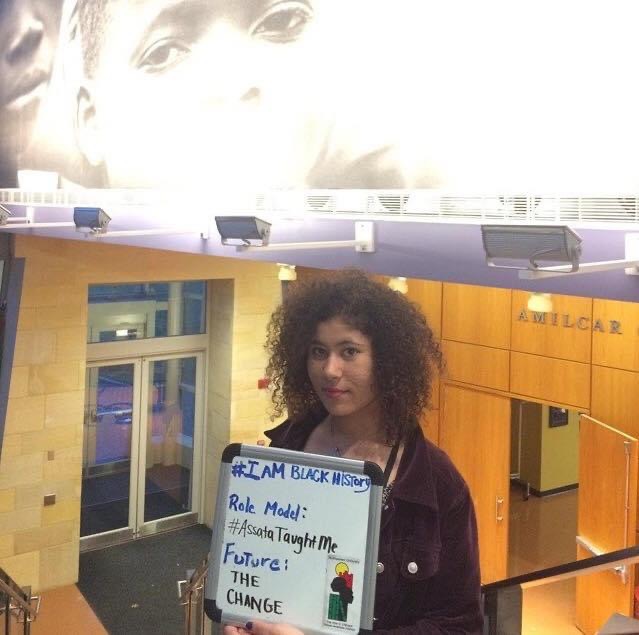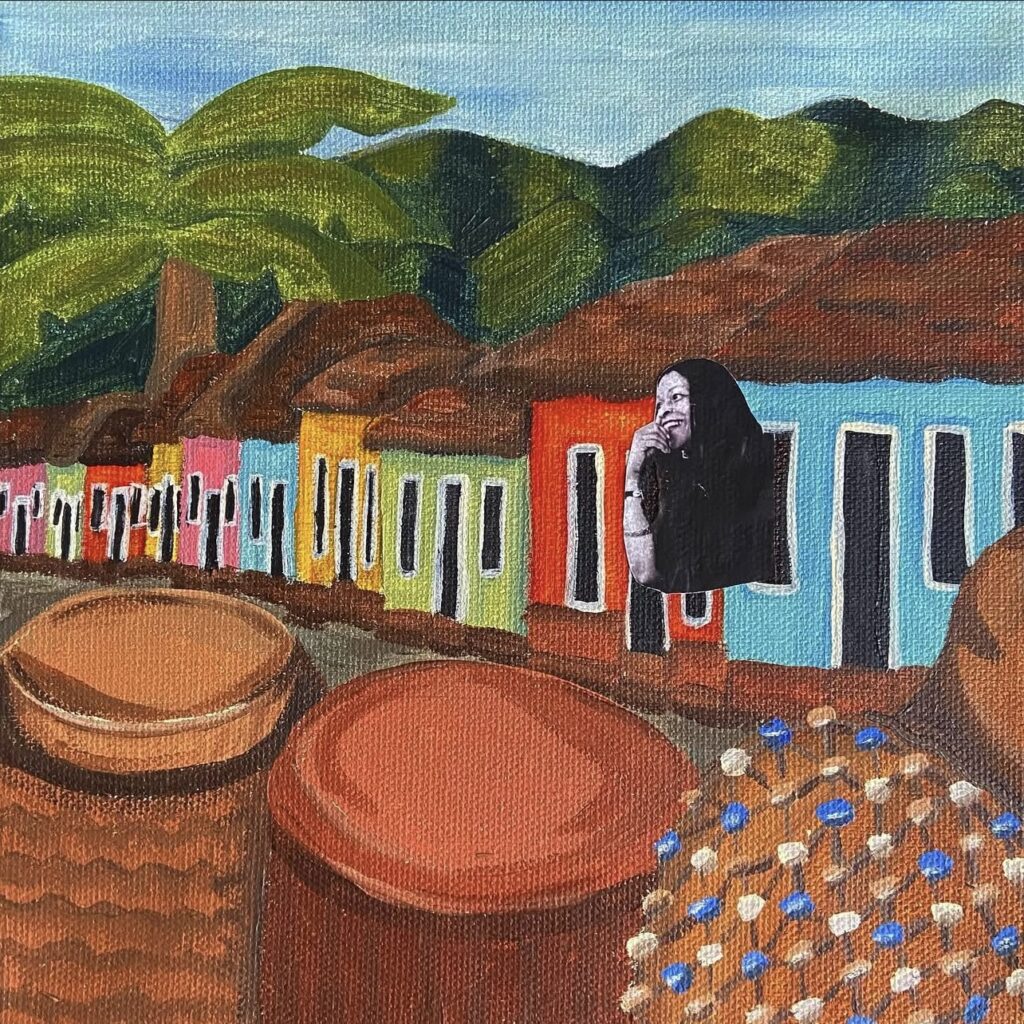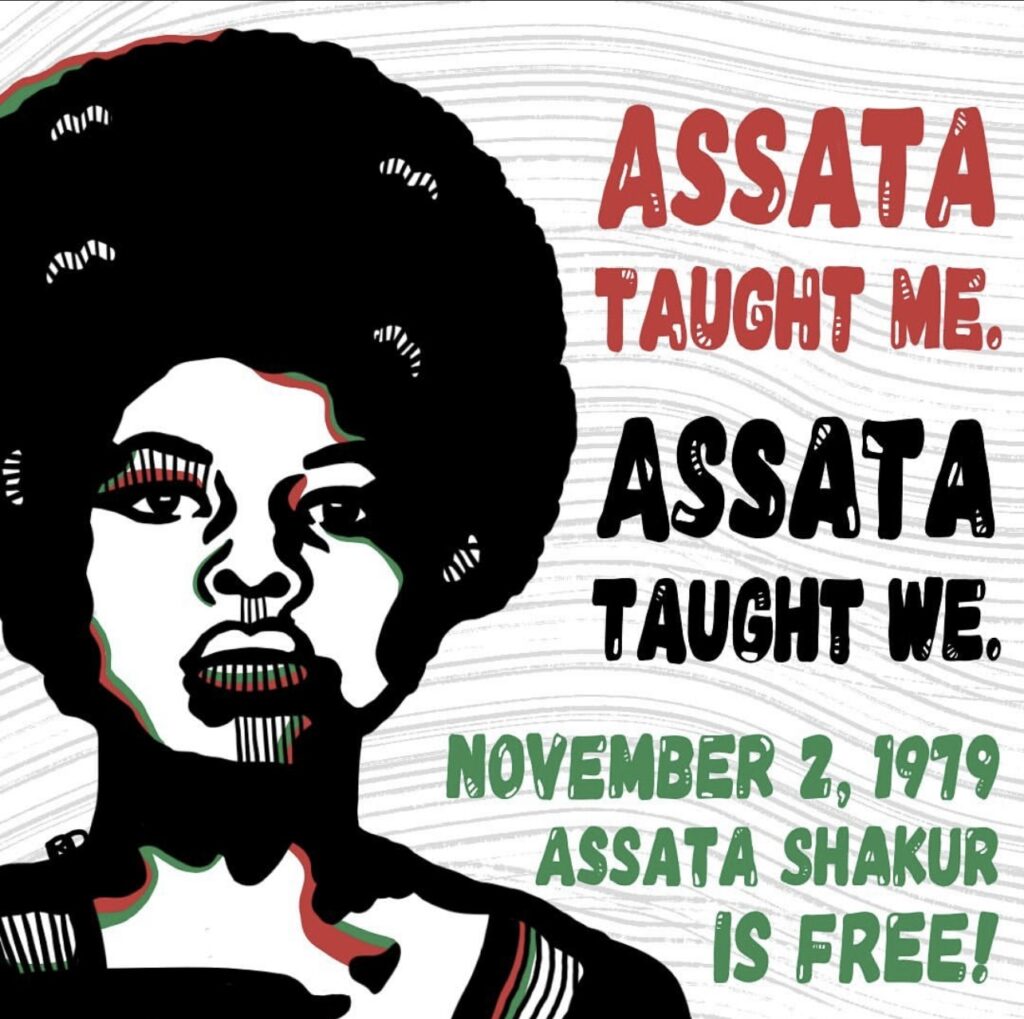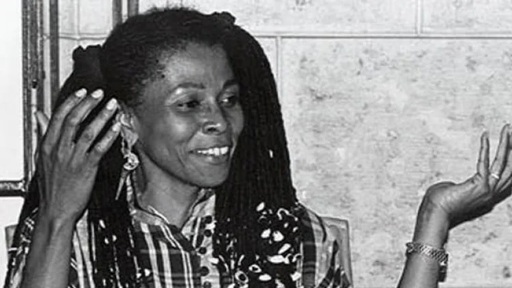Black revolutionary freedom fighter Assata Shakur passed away on September 25, as announced by the Cuban Ministry of Foreign Affairs. Shakur, who had been granted political asylum in socialist Cuba, left behind a legacy of inspiration for young, particularly Black organizers in the United States.
Peoples Dispatch spoke to Rachel Domond, a 28-year-old Black organizer, visual artist, and a member of the Party for Socialism and Liberation, on how Shakur’s life and legacy influenced her political journey.
 Rachel Domond at Northeastern University
Rachel Domond at Northeastern University
Peoples Dispatch: When did you first encounter Assata Shakur’s story? How did it impact you?
Rachel Domond: Assata Shakur was the first revolutionary I encountered in my personal life.
Obviously, we were taught a little bit about Malcolm X. We studied some Martin Luther King in grade school, when we were growing up. But we never talked about Assata Shakur.
I read her autobiography when I was 18, as a freshman in college. I went to Northeastern University, which was a predominantly white institution. I got a scholarship through the Black Student center on campus. Based on my own life conditions, I had been predisposed to the brutalities of being poor, being Black, being a woman, living in the United States, growing up with a single mom, having family that was involved in the carceral system, and getting exposed to a lot of violence from a really young age.
When I was a freshman in college, there was a Black student uprising that year. Students at the University of Missouri were protesting racism on campus. I remember the football team refused to play. It kind of sparked a student uprising across campuses. I went to my first protest during that period.
This was a time when I was becoming more politically active because I was predisposed to feeling angry about the conditions of the world and seeking justice for the people around me. I had heard the name and I decided to read this autobiography.
Assata wasn’t necessarily predisposed to being a revolutionary. She taught me the lesson that you don’t have to be a certain way, or have a certain type of academic or intellectual experience to understand the world around you.
But she became a really disciplined revolutionary. She taught me about the prospects for fighting for freedom and winning freedom in our lifetime. She taught me about the duty I have to dedicate myself to this cause for fighting for justice and the need for organization, that you’re not just going to get it done by going at things haphazardly, but you have to be in an organization. You have to connect different struggles together, be internationalist in outlook.
 A visual art piece by Rachel Domond
A visual art piece by Rachel Domond
PD: What about her life and politics spoke most directly to you as a young Black organizer?
RD: She had a lot of anger growing up, which I think a lot of us do. I mean, we’re forced to see these egregious conditions against our people, against ourselves, and against our families. Then on top of that, we see the news.
I remember it was around the time when I read her autobiography that Tamir Rice was killed. I remember watching that video on repeat of him being shot down while playing with a toy gun, and that’s enraging.
But what spoke to me was the need to channel that anger into something productive. It’s not enough to just hate something. It’s not enough to just be angry.
Anger is important in being able to move people to action. But if we ever want to see things change, we have to be able to channel that anger into something more productive, something that can actually be rooted in a deep sense of joy, compassion, and empathy for other people.
I think that’s one of the things that Assata teaches so many people. She’s one of those revolutionaries that preaches love in a way that’s not corny or cliche or demobilizing, because I think sometimes those types of tropes of revolutionary joy, revolutionary love, revolutionary care, can demobilize people from actually taking action. But we see that Assata used that as the foundation for actually taking action for her people.
Along with that anger and the understanding of the oppression that Black people face that so many of us as young Black organizers see, we can be led to pessimism. It’s what we call Afropessimism, essentially. It’s those kinds of thought patterns that are exactly what the people in power want us to feel. They want us to feel demoralized.
Assata really taught me as a young Black organizer that we can’t accept that. She made it clear that we have a duty to fight and not accept this as our reality because it hasn’t always been this way and it won’t always be this way. History has shown us that.
 A visual art piece by Rachel Domond
A visual art piece by Rachel Domond
PD: Assata stressed solidarity across borders, from Cuba to South Africa to the Americas. How do you see that internationalism playing out in your own work?
RD: Assata wasn’t simply a revolutionary Black leader. She wasn’t simply a leader that challenged white supremacy, but she challenged capitalism. She challenged US imperialism, too, and not only that, she bridged the connection with Cuba. Socialist Cuba has always been a committed friend of the US people, of our movements against racism, against capitalism. By Assata seeking refuge in Cuba, she was making a declaration about the interconnectness of our struggles.
It’s important to acknowledge that she was so heavily criminalized, because of that connection that she drew between the fight against racism and the fight for socialism.
She wasn’t a violent criminal that they were trying to paint her as. That’s why they had to frame her for a police murder. Militancy is often just construed as being for violence, and Assata simply didn’t use that type of language. She used motivating messages that are rooted in hope, joy, love, commitment, and dedication in the face of adversity.
And that was particularly dangerous, because it’s not so easy to criminalize. But they had to try their damnest… It’s quite interesting, actually, that Obama, being the first Black president, used his power to increase the bounty on her head from 1 million to 2 million dollars and then placed her on the FBI’s Most Wanted Terrorists list.
If we are to actually honor Assata Shakur, we have to carry out this duty of internationalism as well. It’s not enough to just say she’s a Black revolutionary, and so we need to continue her work against racism, because that’s not all she was doing. That’s a limited framework for how she viewed the fight against white supremacy, because she understood to “never let your enemies choose your enemies for you,” which is a direct quote.
When she wrote that, I think she’s referencing the fact that this is happening during the Cold War when the US government is trying to demonize movements across the world, across Africa, who are fighting against colonialism, capitalism, and imperialism.
PD: What lessons from her life feel most urgent for this moment in Black liberation struggles?
RD: Assata taught us most about discipline and about duty. If we want to win, we must approach our task with seriousness, with commitment, and with discipline, because the enemy that we’re up against has forced our revolutionary ancestors into exile, has jailed them, has killed them. We have to be even more serious, even more committed, and even more disciplined than the system that has historically been set on “exposing, disrupting, misdirecting, discrediting, or otherwise neutralizing” our movements.
To honor Assata, and the revolutionaries we’ve lost, it’s not simply about repeating their words, but learning the lessons of their fights and continuing the struggle. As she reminds us, “It is our duty to fight for our freedom. It is our duty to win.”
The post Learning from Assata: A young Black socialist on duty and discipline appeared first on Peoples Dispatch.
From Peoples Dispatch via this RSS feed


